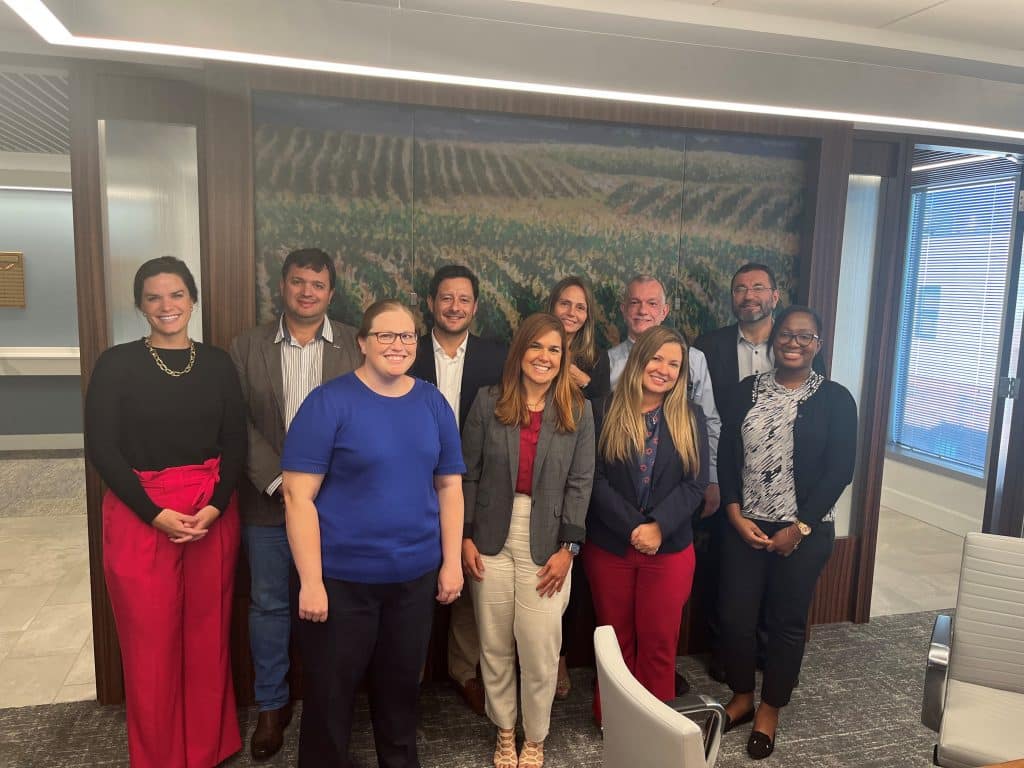Implemented in 2020, the RenovaBio program in Brazil seeks to decarbonize the transport sector by setting reduction targets for fuel distributors there. The program targets generating approximately five billion gallons of ethanol demand through 2030.
After two years of implementation, no U.S. ethanol plants have been certified under the RenovaBio program, losing market competitiveness, and limiting the access to the carbon credit market inside Brazil.
In response, the U.S. Grains Council (USGC), along with the U.S. Department of Agriculture (USDA), hosted a team of Brazilian government officials from the National Agency for Petroleum, Natural Gas and Biofuels (ANP), the Ministry of Mines and Energy (MME) and the Brazilian Enterprise for Agricultural Research (EMBRAPA) that recently met with U.S. government officials, industry representatives and key stakeholders in the U.S. ethanol supply chain.
The engagement was arranged to provide technical information to the Brazilian team, helping them better understand U.S. ethanol industry certification programs, logistics and operational practices. Through this mission, the Council hopes to answer questions Brazilian regulators have regarding the U.S. ag system and sustainability efforts in the states.
“By receiving first-hand information, the Brazilian delegation will be able to adjust the requirements of the program and create access for U.S. ethanol plants,” said USGC Latin America Ethanol Consultant Juan Sebastian Diaz. “The level of participation and the information provided by government and industry stakeholders have amplified the knowledge about the implementation of the U.S. biofuels program and the requirements to fulfill sustainable practices that are expected to encompass the RenovaBio goals.”
While in the states, the team spent time in Washington, D.C., meeting with industry and government groups, including the Council, before meeting with educational organizations, lab teams and several Council members in the ethanol industry.
“The visit has provided an invaluable experience to both the group from Brazil and the ethanol industry here in the U.S.,” said Joana Hassan, USGC manager of global ethanol programs.
“We’ve had really good meetings this week, and we couldn’t have done it without our industry partners, Illinois Corn, Missouri Corn, USDA and FAS Brazil. We’ve been able to sit at the table and talk through some issues and make clarifications almost immediately. It is evident they have a better understanding of what our processes here in the U.S look like.”
The Council looks forward to continuing its work with Brazilian government officials and U.S. ethanol partners to create opportunities for the U.S. commodity in Brazil.
“The Brazilian RenovaBio program has set ambitious goals to decarbonize the transportation sector, and U.S. ethanol is expected to play an essential role in the next few years. The Council wants to ensure prompt access to RenovaBio certificates and to permanently eliminate duties to regain market competitiveness,” Diaz said.
About The U.S. Grains Council
The U.S. Grains Council develops export markets for U.S. barley, corn, sorghum and related products including distiller’s dried grains with solubles (DDGS) and ethanol. With full-time presence in 28 locations, the Council operates programs in more than 50 countries and the European Union. The Council believes exports are vital to global economic development and to U.S. agriculture’s profitability. Detailed information about the Council and its programs is online at www.grains.org.

